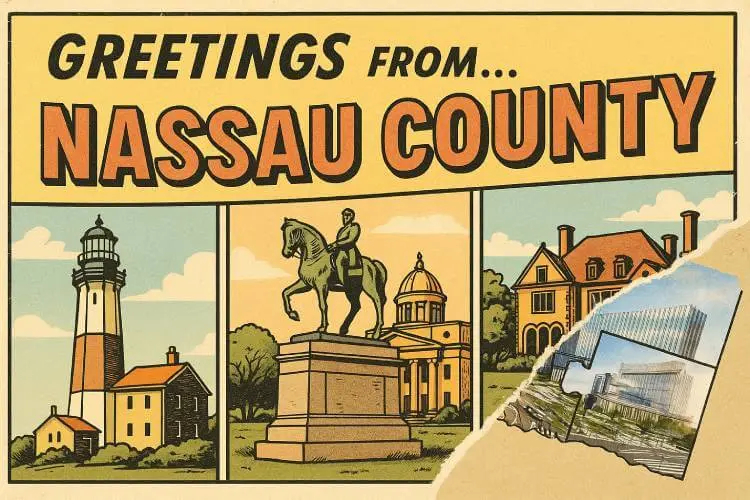Las Vegas Sands Backs Out of Nassau Coliseum Casino Bid

iGaming News, Blog, and Bonus Specialist

Las Vegas Sands has officially withdrawn its plans to develop a multibillion-dollar casino resort at the Nassau Coliseum site in Uniondale, New York. The gaming company’s decision, announced in late April 2025, ends what had been one of the most closely watched casino license bids in downstate New York.
Strategic Shifts Behind the Exit
The company cited several reasons for stepping away from the project. One of the major factors influencing its decision was the potential expansion of online gambling in New York. The growing focus on online gaming raised concerns about the long-term viability and profitability of large-scale land-based casino resorts in the region.
In addition, Las Vegas Sands plans to shift capital toward strengthening its financial position, with investments focused on buying shares in its U.S. and Asian operations. The company sees greater value in reinforcing existing assets, particularly in markets where it already holds strong positions, namely, Macao and Singapore.
The broader context also includes ongoing uncertainty surrounding U.S.–China relations. Sands currently operates five properties in China-controlled Macao and one in Singapore, making it highly sensitive to any regulatory or geopolitical shifts. With a majority of its revenue coming from Asia, Sands appears to be doubling down on markets where it sees more immediate return on investment.
Local Support, But Strong Community Resistance
Las Vegas Sands had initially received political support for the Nassau Coliseum project. Local officials had backed the proposal, and a long-term lease had already been arranged for the 72-acre site. The plan involved transforming the aging venue into an integrated resort complex featuring a casino, luxury hotel, restaurants, and convention facilities.
Despite the local government’s backing, the project encountered significant pushback from nearby communities. Residents raised concerns about the social and environmental effects of bringing a casino into the area. Issues such as increased traffic, noise, and the long-term impact on local infrastructure were commonly cited.
Hofstra University, located close to the proposed site, was among the most vocal opponents. The university questioned the compatibility of a casino with its academic environment and long-standing role in the community. Legal challenges were also mounted, including lawsuits that alleged procedural steps, particularly those related to environmental review, were bypassed in the approval of the lease agreement.
Future of the Site Still Unclear
Although Las Vegas Sands has stepped away from the casino bid, it hasn’t fully disengaged from the Nassau Coliseum site. The company has expressed interest in assisting with future development efforts, possibly through a third-party entity that may continue to pursue a casino license.
At the county level, officials are now reassessing the site's future. With strong interest from other gaming companies, discussions are ongoing regarding whether a casino remains part of the site’s long-term vision. A final decision on the inclusion of a gaming element is expected within the next month.
Regardless of the direction taken, the goal remains to develop the property in a way that stimulates local economic growth. County officials are exploring options that could bring jobs and generate revenue, even without the involvement of a casino.
Implications for the Downstate Casino Race
Las Vegas Sands’ departure from the New York licensing race narrows the field for the three casino licenses expected to be awarded in the downstate region later this year. The move is seen as potentially benefiting several remaining contenders who are still in the running with proposals in locations such as:
- Citi Field in Queens (backed by Mets owner Steve Cohen and Hard Rock)
- Hudson Yards in Manhattan (Wynn/Related proposal)
- Times Square (SL Green, Caesars, Roc Nation)
- Coney Island (Thor Equities)
- The Bronx (Bally’s at Ferry Point)
- Aqueduct (Genting’s Resorts World seeking complete casino upgrade)
Each of these projects presents a distinct vision and has garnered varying levels of community support. With Sands no longer competing, the competition for the three available licenses may intensify.
An Evolving Casino Landscape
Las Vegas Sands’ decision reflects broader changes in the gambling industry. As more states consider legalizing online casinos and mobile betting, traditional brick-and-mortar casinos face new challenges. The economic environment has also added pressure to focus on high-yield, lower-risk investments. For Sands, this means prioritizing established markets and minimizing exposure to lengthy regulatory timelines.
While some viewed the Nassau site as the strongest candidate for a resort-style casino, the project ultimately became a casualty of market shifts, regulatory delays, and local resistance.
What Comes Next for Uniondale
The Nassau Coliseum and the surrounding area remain a key development zone. Even without Sands, the site still holds strategic value due to its size and location. County officials continue to hold talks with other gaming organizations, and another developer could step in with a revised plan that includes or excludes a casino component.
For now, the focus will be on determining how to move forward with a development that brings long-term benefits to the area, whether through entertainment, retail, hospitality, or a combination of uses.
